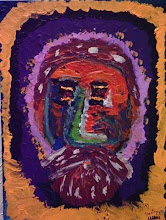Here's one that I am finding in common usage, again, and by those not of my common gender. Timothy
A similar reflection could be presented on the ‘n’ word being used by those with an African heritage as well as those not, both of supposed colour and not. The same could be done regarding the usage of the ‘b’ word, or the ‘c’ word. Language always communicates more than any one or combination of word/s. I’ve heard this last year the recovery of the bigoted usage of the ‘J’ word, yes ‘Jew’ being used as a hurtful word, something I hadn’t heard since my teens. I’ve heard those of the other gender call each other the ‘b’ word, and laugh, publicly.
It’s not the words being used that concerns me as much as what is meant by their usage, both by those using them as well as what collectively it reflects upon us presently as a species. This is not a moralist projection or opposition, only a reasonable question: Why do we use the words we use, specifically regarding one another, and do we care how this affects and effects those they’re said about and those who hear them said?
Each word is an icon into the mystery of its synergy of import of its cumulative usage, both written and spoken. The value of post-modern, post-structural views of the logos is that the pejorative projection, ‘language can mean anything so it means nothing,’ is turned upside down giving us the possibility to behold more than less in the potential of the beauty of it all. 8/9/10
reflections on hysteria; timothy r gates, 01/28/2007 and 8/9/10
The term originates with the Greek medical term, hysterikos. This referred to a medical condition, thought to be particular to women, caused by disturbances of the uterus, hystera in Greek. The term hysteria was coined by Hippocrates, who thought that the cause of hysteria was due to the uterus wandering around the body in search of children. The same general definition, or under the name female hysteria, came into widespread use in the middle and late 19th century to describe what is today generally considered to be sexual dissatisfaction. Typical treatment was massage of the patient's genitalia by the physician and later vibrators or water sprays to cause orgasm. By the early 1900s the practice, and usage of the term, had fallen from use, until it was again popularized when the writings of Sigmund Freud became known and influential in Britain and the USA in the 1920s. The Freudian psychoanalytic school of psychology uses its own, somewhat controversial, ways to treat hysteria.
Because of its association with female hysteria the term hysteria fell out of favor in the latter half of the 20th century. The word "hysterical" was replaced with synonyms such as functional, nonorganic, psychogenic and medically unexplained. In 1980 the American Psychiatric Association officially changed the diagnosis of “hysterical neurosis, conversion type” to “conversion disorder.”
*Above two ¶’s From Wikipedia, the free encyclopedia http://en.wikipedia.org/wiki/Hysteria
Hysteria, a renewed usage of the term can be heard in stores, coffee shops, even religious gatherings when watching children, or young teens behaving in ‘normal’ manners relative to their ages but not what many folks desire. In a post-feminist age I do hear the form used as, ‘She, or he, or they’re hysterical!’ Literally this means, ‘She, or he, or they’re acting like a woman, or women running around with their uterus, or uteri searching for their children,’ real or supposed.
Sixteen-century understandings would be found used in this fashion, ‘She, or he, or they’re acting like a woman without adequate sexual satisfaction. This helped the evolution of sexual toys industry before they were called such.
By the early 1900s it fell out of usage due to the woman’s movement, suffrage movement and to our good, a brief enlightenment regarding women relative to the male gender (you thought that I was going to use the word ‘species’).
Sigmund Freud’s popularity with psychiatric, psychological and counseling treatments brought the word back into usage in the 1940s. He was a misogynist to the highest, r lowest, degree, just in case if one didn’t know this. His rancor against religion did not effect his general conclusion to assume the basic negative genetic genesis of our species as well as to blame ‘the Woman’ for all of our ills. Sex was the blame, usually by our mothers, i.e., women, and to fix it you needed to fix this damnable gender, the perpetuator of the male gender’s issues (a little pun, this last word). The 70s helped us disassociate this bullshit with the good that came out of the feminist movement.
In the now post-feminist period, sort of a post-menopausal period too, most women no longer object to this word. Women my age having their teens in the 60s don’t use it, but the newbies have forgotten its etymology and without realizing it have gone back to poking at their own gender, blaming those with a uterus, or those who once had one, for our societal ills.
Mary, Bloody Mary, Queen of Scots, Catherine the Great or the war hungry solution finder, along with the men of the world during her reign, Prime Minister Margaret Thatcher, these are the exception in our species-story. His-story has been a consistent murderous history. Her-story with the exception of these women and a few others have not known war and murder to be the solution to anything. In a post-modern, post-structural, post-all-of-the-above-time, maybe, we could give it a positive spin, ‘They’re hysterical!’ meaning, ‘They’re peace-loving people not controlled by their need to win!’ Why not?

